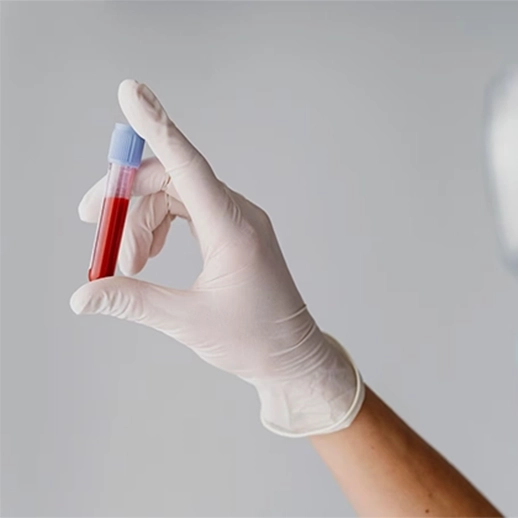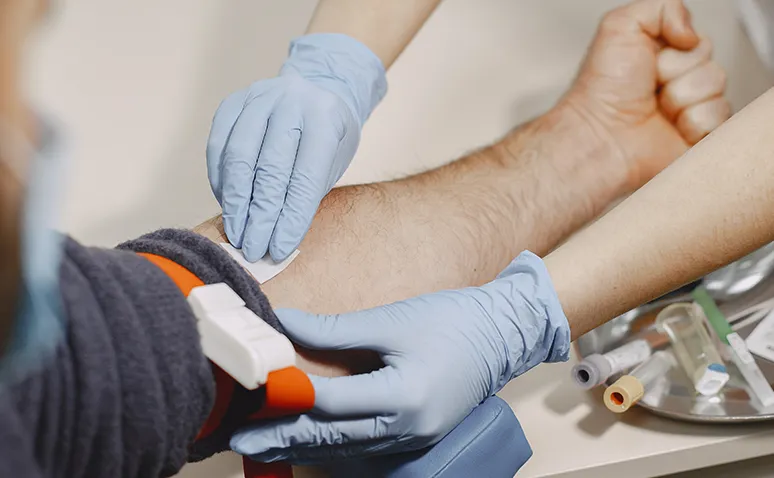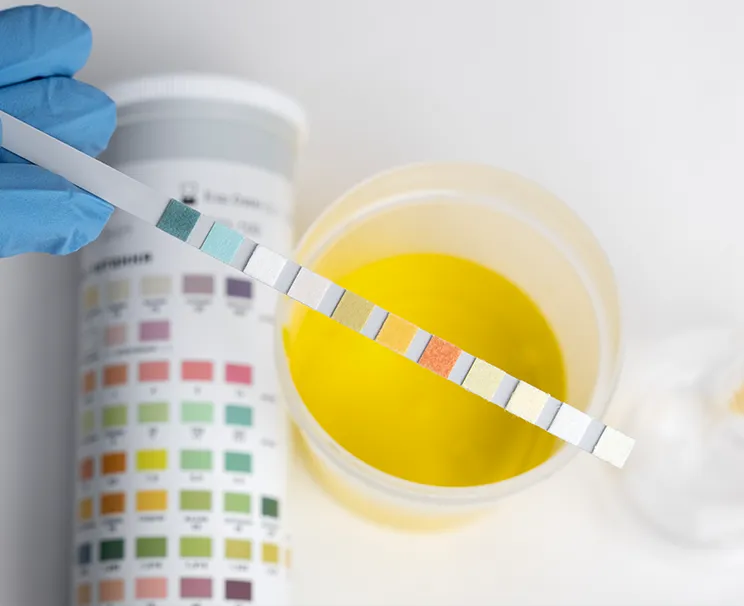Blood test for itching is conducted to determine whether there is an underlying issue in the body’s internal balance. Often overlooked, this symptom may be an early sign of certain systemic diseases. Therefore, not only the skin but the entire body should be evaluated.
Blood test for itching can reveal not only allergic conditions but also dysfunctions of organs such as the liver, kidneys, and thyroid. Especially in cases of unexplained and prolonged itching, these tests speed up the diagnostic process. The doctor determines the necessary parameters based on the patient’s history and requests a detailed analysis. In this way, while the possibility of an allergy is evaluated, other potential diseases are ruled out.
What Is a Blood Test for Itching?
Itching in the body can indicate various health problems and may sometimes stem from serious allergic conditions beyond a simple skin reaction. In such cases, blood tests are crucial for understanding the underlying causes.
Especially in persistent or recurrent itching, analyses targeting the immune system are recommended. This is because the body’s immune response can often be detected in the blood.
Allergies are among the leading causes of itching. To identify this reaction against allergenic substances, allergy tests are used. These tests measure the levels of immunoglobulin E (IgE) in the blood to detect sensitivities. Triggers such as food, pollen, or animal dander can be identified.
Blood allergy tests are frequently preferred due to their fast and reliable results. The procedure is quite simple; a tube of blood is drawn in the laboratory, and the tests are conducted. Based on the results, a specialist plans the appropriate treatment process.
The testing process proceeds as follows:
- First, the procedure begins with a sample taken from the patient, either fasting or fed.
- The sample is analyzed in the lab according to IgE levels.
- The body’s response to specific allergens is reported in detail.
- Based on the data, the source of the allergy is identified, and if necessary, an elimination diet or medication is initiated.
So, how are these tests performed? The procedure is both safe and painless, taking only a few minutes. Especially in cases of unexplained body itching, this method is highly valuable for accurate diagnosis.
Allergy testing plays an effective role in improving quality of life by providing early diagnosis and a personalized treatment plan. These tests should not be neglected in the fight against chronic itching.

When Is a Blood Allergy Test Necessary?
Certain health complaints require more detailed testing to determine whether they are allergy-related. At this point, blood allergy testing becomes relevant in many symptomatic but unexplained cases.
Allergic reactions can manifest differently in each person and are usually caused by the immune system’s uncontrolled responses. Especially in problems related to the skin, respiratory, or digestive systems, doctors may request this test to clarify the diagnosis.
The main conditions where the test is usually requested include:
Through this test, how a person’s immune system responds to certain substances becomes clear. Thus, doctors can create more informed, personalized treatment plans. Early intervention helps relieve symptoms and improves quality of life.
Frequently Asked Questions
A blood allergy test is conducted using a tube of blood drawn from the patient. This sample is sent to the lab, where the immune responses to various allergens-particularly IgE antibody levels-are analyzed.
The most common blood allergy tests include total IgE, specific IgE (RAST test), and panel tests. These tests reveal the effects of allergens such as food, pollen, and animal hair on the body.
To determine the cause of itching, allergy tests, as well as complete blood count, liver function tests, and thyroid hormone analyses may be requested. The type of test can be expanded based on the cause.
Yes, some underlying causes of itching can be identified through blood tests. Allergic reactions, infections, and kidney or liver dysfunctions can cause changes in blood values.
Allergies can generally be identified through elevated IgE levels in the blood. However, some allergic reactions can only be detected through skin tests. Therefore, your doctor will determine the appropriate method.
To understand the root cause of your itching and secure your health, you can contact Denge Tıp.











